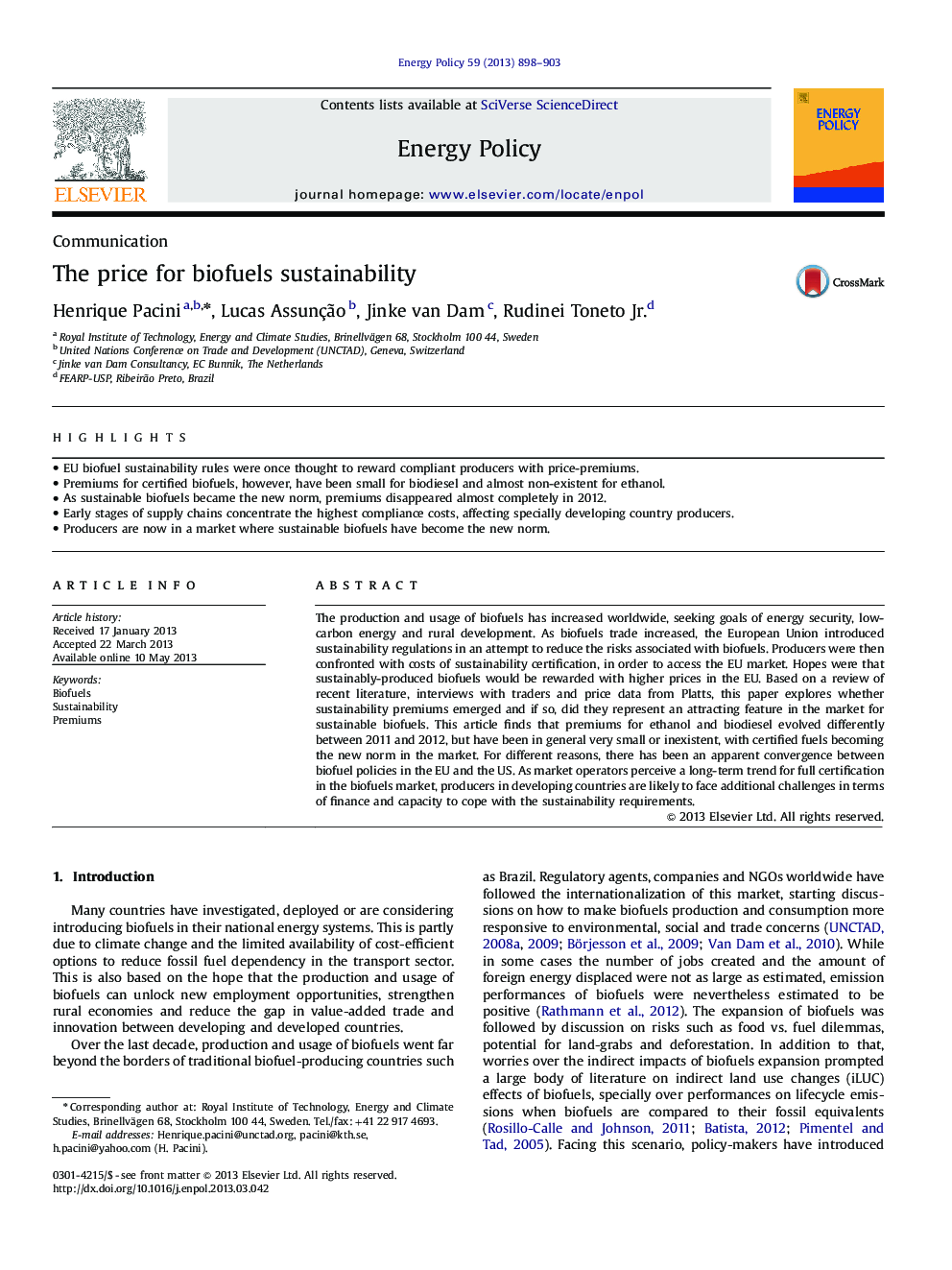| Article ID | Journal | Published Year | Pages | File Type |
|---|---|---|---|---|
| 7404896 | Energy Policy | 2013 | 6 Pages |
Abstract
The production and usage of biofuels has increased worldwide, seeking goals of energy security, low-carbon energy and rural development. As biofuels trade increased, the European Union introduced sustainability regulations in an attempt to reduce the risks associated with biofuels. Producers were then confronted with costs of sustainability certification, in order to access the EU market. Hopes were that sustainably-produced biofuels would be rewarded with higher prices in the EU. Based on a review of recent literature, interviews with traders and price data from Platts, this paper explores whether sustainability premiums emerged and if so, did they represent an attracting feature in the market for sustainable biofuels. This article finds that premiums for ethanol and biodiesel evolved differently between 2011 and 2012, but have been in general very small or inexistent, with certified fuels becoming the new norm in the market. For different reasons, there has been an apparent convergence between biofuel policies in the EU and the US. As market operators perceive a long-term trend for full certification in the biofuels market, producers in developing countries are likely to face additional challenges in terms of finance and capacity to cope with the sustainability requirements.
Keywords
Related Topics
Physical Sciences and Engineering
Energy
Energy Engineering and Power Technology
Authors
Henrique Pacini, Lucas Assunção, Jinke van Dam, Rudinei Jr.,
